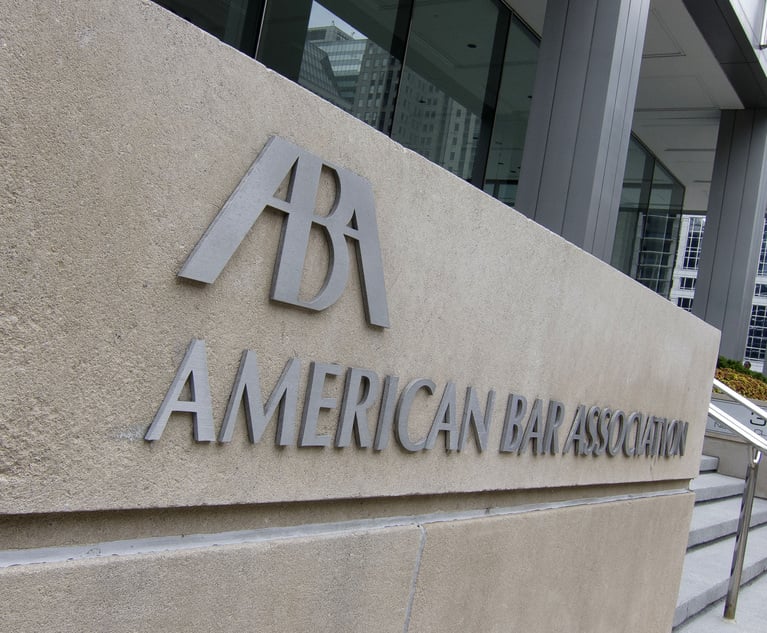In an issue of first impression, the Appellate Division held that two New Jersey universities are immune from liability under the Emergency Health Powers Act, with regard to their decision to pause in-person instruction in compliance with executive orders issued by the governor to limit the spread of COVID-19.
The plaintiffs in this case are undergraduates attending Kean University and Montclair State University as full-time students, according to the opinion. Their putative class actions claimed breach of contract, unjust enrichment, conversion, or money had or received, based on the decision the universities made to transition to total online instruction rather than an in-person, on-campus education experience during the COVID-19 pandemic.
The students, Andrew Mueller and Athena Brock-Murray of Kean, and Colin Keyes of Montclair Statey, alleged that they lost the benefit of the in-person education and services that they paid for, according to the opinion.
On March 10, 2020, Kean announced that all classes would be held remotely beginning March 16, 2020, according to the opinion. Montclair State extended its spring break and transitioned to remote classes beginning March 23, 2020. Neither school held any in-person classes, for the rest of the semester, after March 6, 2020.
In their complaints, the students alleged that the two schools failed to “deliver the educational services, facilities, access and/or opportunities that they contracted and paid for.” And, according to the opinion, they further claimed that the online options were “subpar in practically every respect” and “were in no way equivalent of the in-person education that plaintiffs and the putative class members contracted and paid for.” The students sought a proportional refund through disgorgement of the tuition and fees paid.
Kean and Montclair State moved to dismiss the cases for failure to state a claim, according to the opinion. The trial court granted that motion, and found that the EHPA immunized the universities from liability.
Gov. Phil Murphy issued two executive orders in response to the COVID-19 pandemic that are at issue in this case. On March 9, 2020, EO 103 declared a public health emergency and state of emergency. That order authorized the Department of Education to take appropriate steps to “protect the heath and well-being of students.” The next order, EO 104, issued on March 16, 2020, “established statewide social mitigation strategies for combatting COVID-19.” The governor ordered all institutions of higher education to cease in-person instruction, according to the opinion.
Kean acknowledged that the tuition and fees for in-person degree programs at the school were higher than its online programs and for programs at other online institutions. Although Kean did not refund tuition, it did refund housing and dining fees for the spring 2020 semester, according to the opinion. The students agreed that Kean was required to suspend in-person classes, but asserted that the executive orders “did not order Kean University to not issue refunds to its students.”
The trial court dismissed the student’s claims with prejudice and found that the transition to online instruction was “undoubtedly an act in connection with a public health emergency” that was “within the scope of the authority granted under the EHPA” and, therefore, immune from the suit.
Montclair State, too, argued that the EHPA immunized the school from suits related to actions in response to the pandemic, according to the opinion. Keyes asserted that it was inequitable to force students to “bear the cost of the pandemic.”
The trial court found that the EHPA’s immunity “shall be liberally construed” and extended to lawsuits such as this one. The court dismissed Keyes’ complaint with prejudice, according to the opinion.
“We conclude that a proper interpretation of N.J.S.A. 26:13-19 incorporates the definition of ‘property’ found in N.J.S.A. 1:1-2, thereby extending the immunity afforded by the EHPA to public entities like Kean and Montclair against claims of breach of contract where the alleged breach occurred because those entities exercised powers and duties related to a public health emergency,” Judge Richard J. Geiger wrote in his opinion for the court.
Geiger stated that this interpretation of N.J.S.A. 26:13-19 is in keeping with the principal that a “fundamental aspect” of a state’s sovereignty is “freedom from suit by private citizens for money judgments absent the state’s consent.” The judge said a state may voluntarily waive its sovereign immunity, as New Jersey has in certain types of claims under the Tort Claims Act and the Law Against Discrimination. But, Geiger said, even under those statutes, immunity generally applies and liability is the exception.
“Kean and Montclair took actions in response to the COVID-19 pandemic and in compliance with EOs issued pursuant to the governor’s powers under the EHPA,” Geiger wrote. “Permitting plaintiffs to recover damages related to those actions would run counter to the legislature’s purpose in granting authority to the executive branch to take such actions to thwart the dangers posed by the COVID-19 pandemic.
“Not every statutory modification of a contractual promise constitutes an unconstitutional impairment of contracts,” Geiger wrote. ”For example, the State has a sovereign right to protect the general welfare of the people.
“We conclude the immunity afforded by the EHPA does not conflict with the state or federal Constitutions, as the statute is intended to promote the general health and welfare of New Jersey residents, employees, students, and visitors, thus giving it a ‘significant and legitimate public purpose,’” Geiger wrote. ”Immunizing public entities from liability related to their actions in a statewide public health emergency is a key part of the legislative scheme, as it allows these entities to act quickly, efficiently, and fully to prepare for and react to such circumstances without fear of litigation consequences.”
The Appellate Division affirmed the trial court ruling and held that Kean and Montclair State are immune from damages for transitioning to online instruction and, therefore, the court did not reach the issues of breach of contract, unjust enrichment, conversion, or money had and received.
Judges Thomas W. Sumners and Ronald Susswein joined in Geiger’s opinion.
Counsel to the appellant students, Philip L. Fraietta and Andrew J. Obergfell of Bursor & Fisher, and counsel to the universities, Attorney General Matthew J. Platkin, Assistant Attorney General Melissa H. Raska, and Deputy Attorney General Michael R. Sarno, did not immediately respond to a request for comment.
NOT FOR REPRINT
© 2024 ALM Global, LLC, All Rights Reserved. Request academic re-use from www.copyright.com. All other uses, submit a request to [email protected]. For more information visit Asset & Logo Licensing.


 Kean University/courtesy photo
Kean University/courtesy photo






